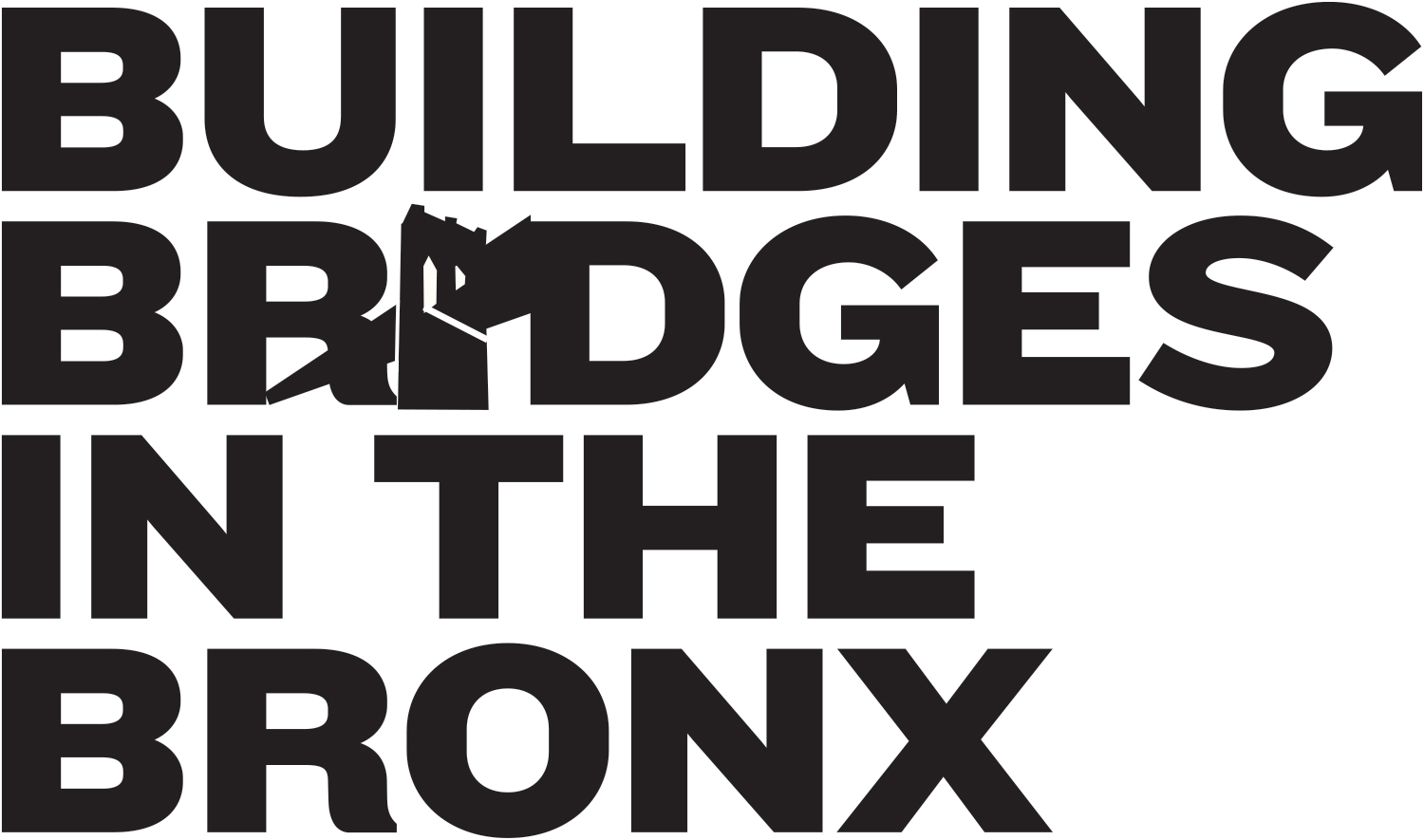
Like millions across the nation, thousands of Bronx businesses have been fighting to stay afloat since the COVID-19 pandemic crippled the world. But as Albert Einstein once said, “In the middle of difficulty lies opportunity.”
Since the pandemic hit, Gabelli School students have been taking charge and leading creative efforts to support their Bronx neighbors as they navigate through unprecedented times.
One group of students determined to make a difference formed the Fordham Business Development Collaboratory (FBDC) with the goal of providing professional consulting services to local organizations, free of charge.
The concept for the FBDC emerged during discussions in a COVID-19 taskforce convened by Sadibou Sylla, adjunct professor at the Gabelli School and interim director of Fordham’s Social Innovation Collaboratory. The idea resonated in a special way, he said, because Fordham was founded to educate immigrants in the Bronx and today the majority of businesses in the Bronx are owned by immigrants.
“This is an opportunity to connect students to the Bronx community and have a better understanding of the fact that we are part of it,” said Rich Shrestha, FCRH ’22, executive director and founding member of the FBDC. “We all have a similar passion to serve others, and this is something we really care about.”
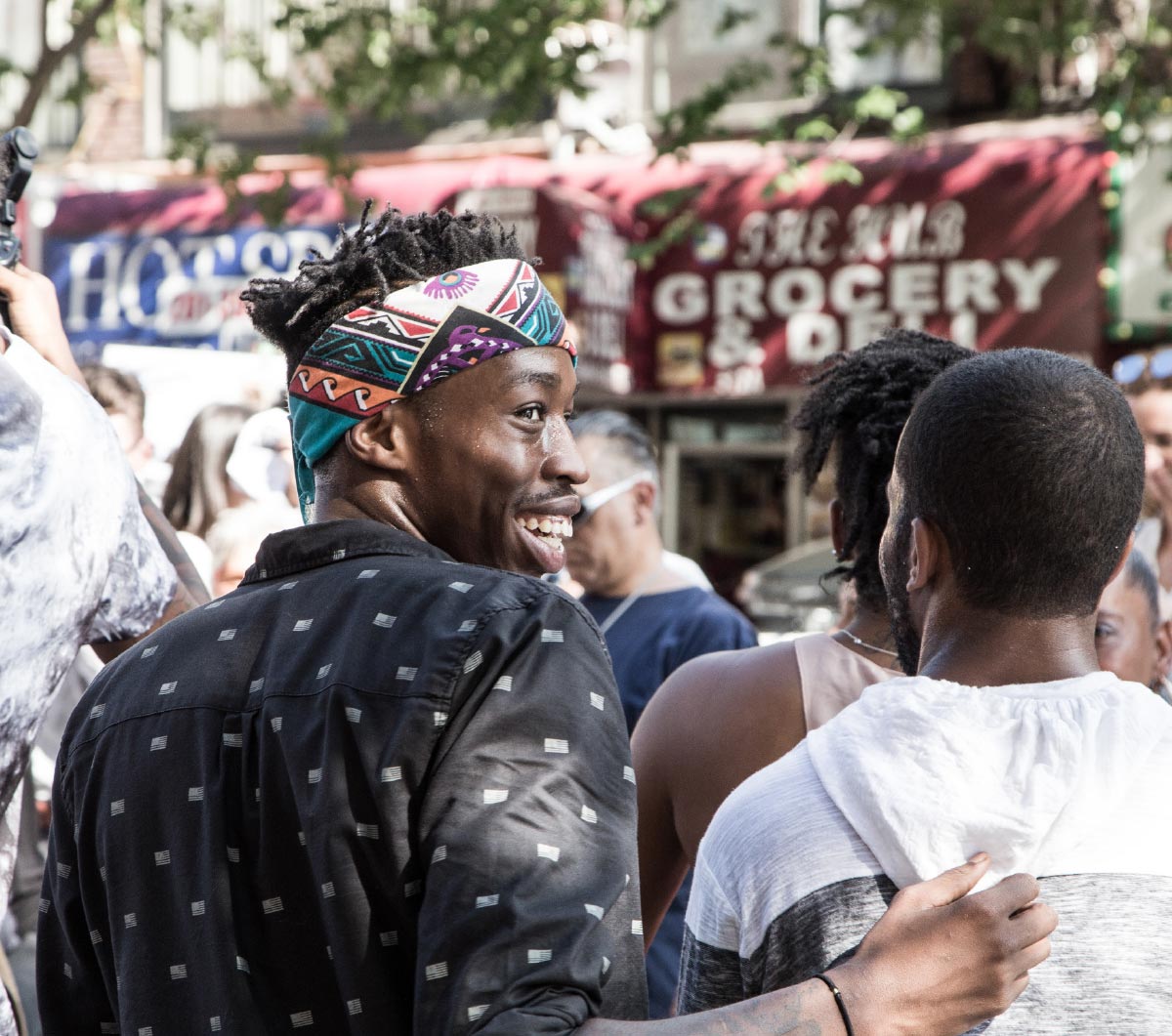
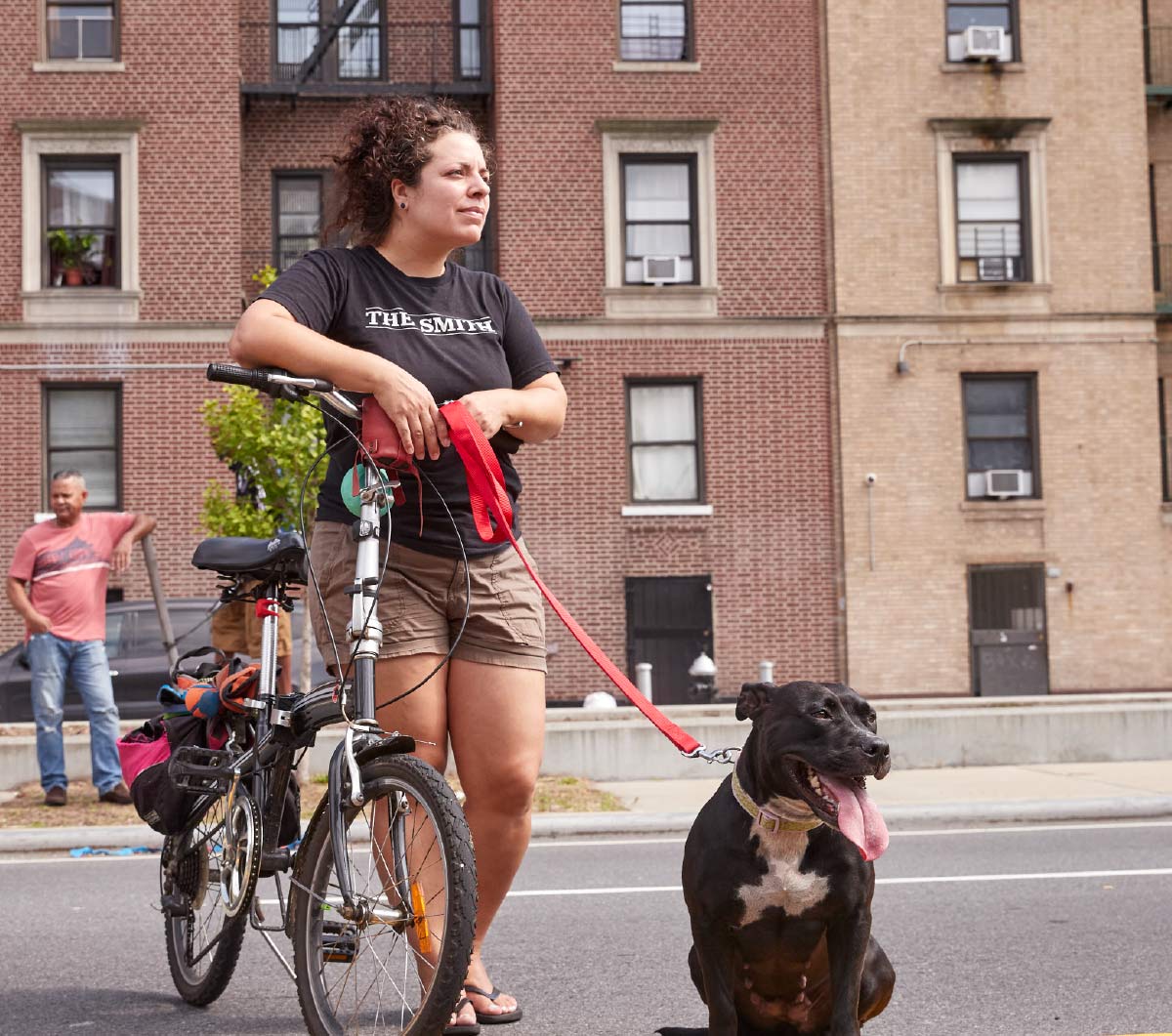
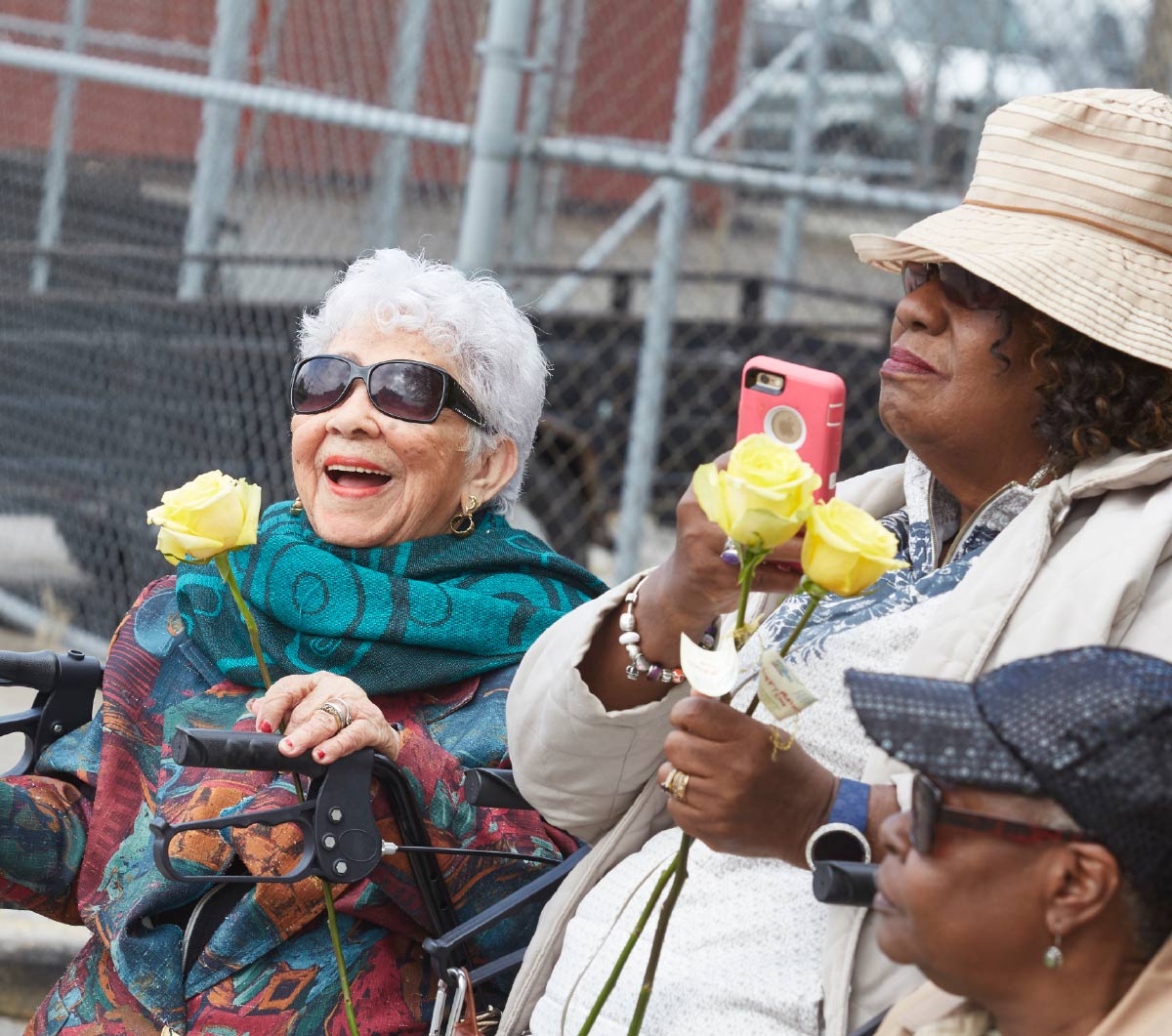
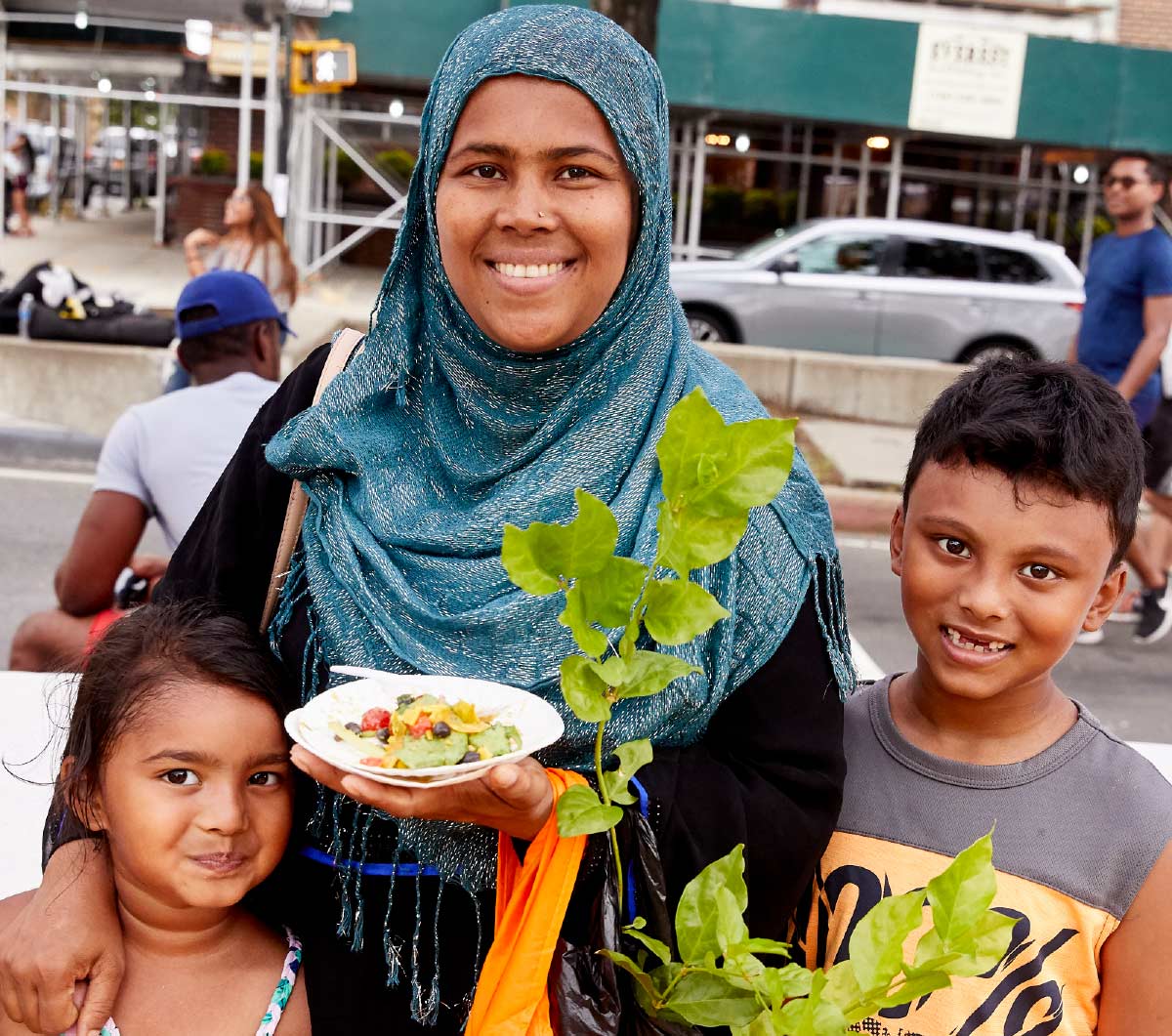
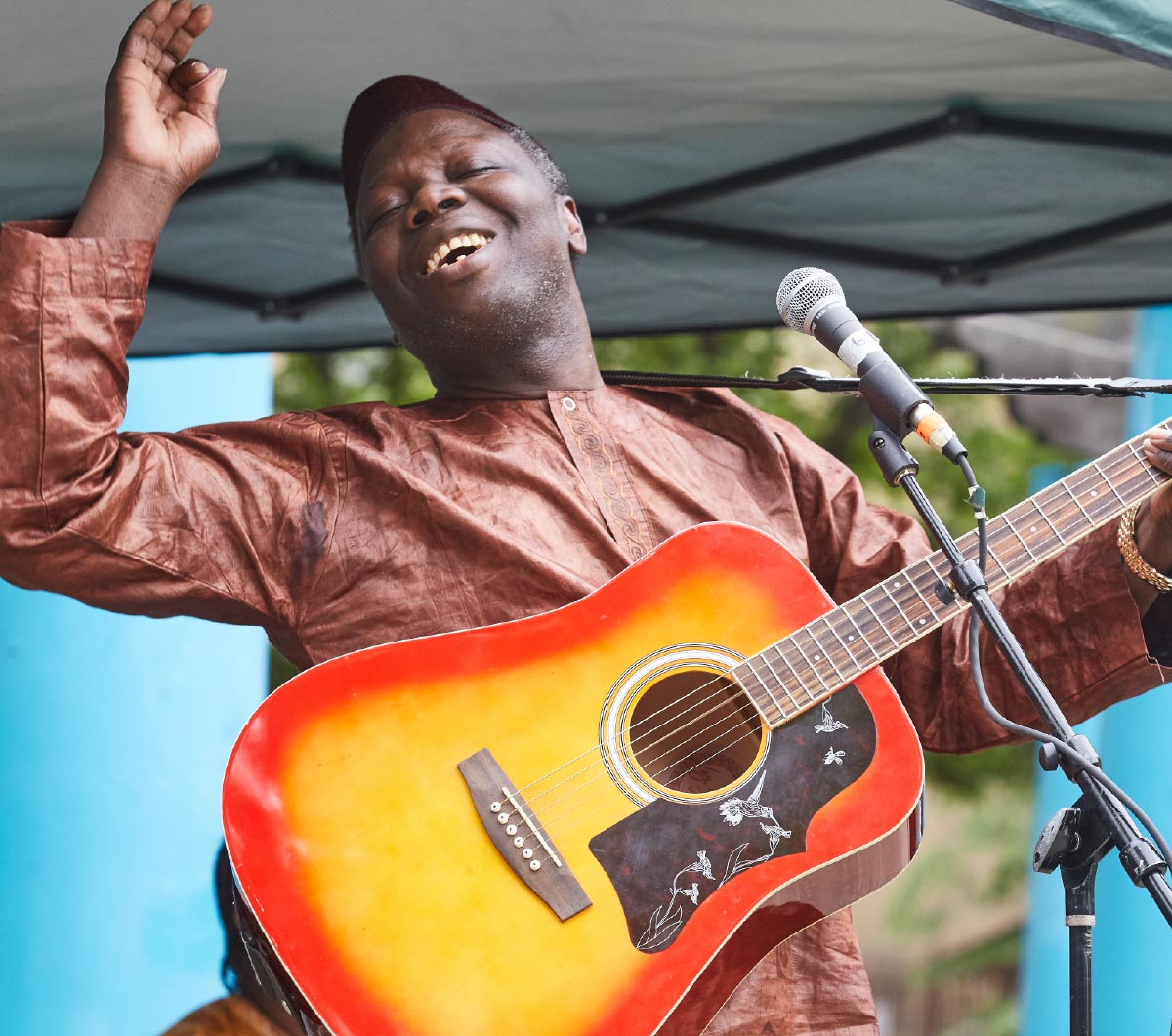
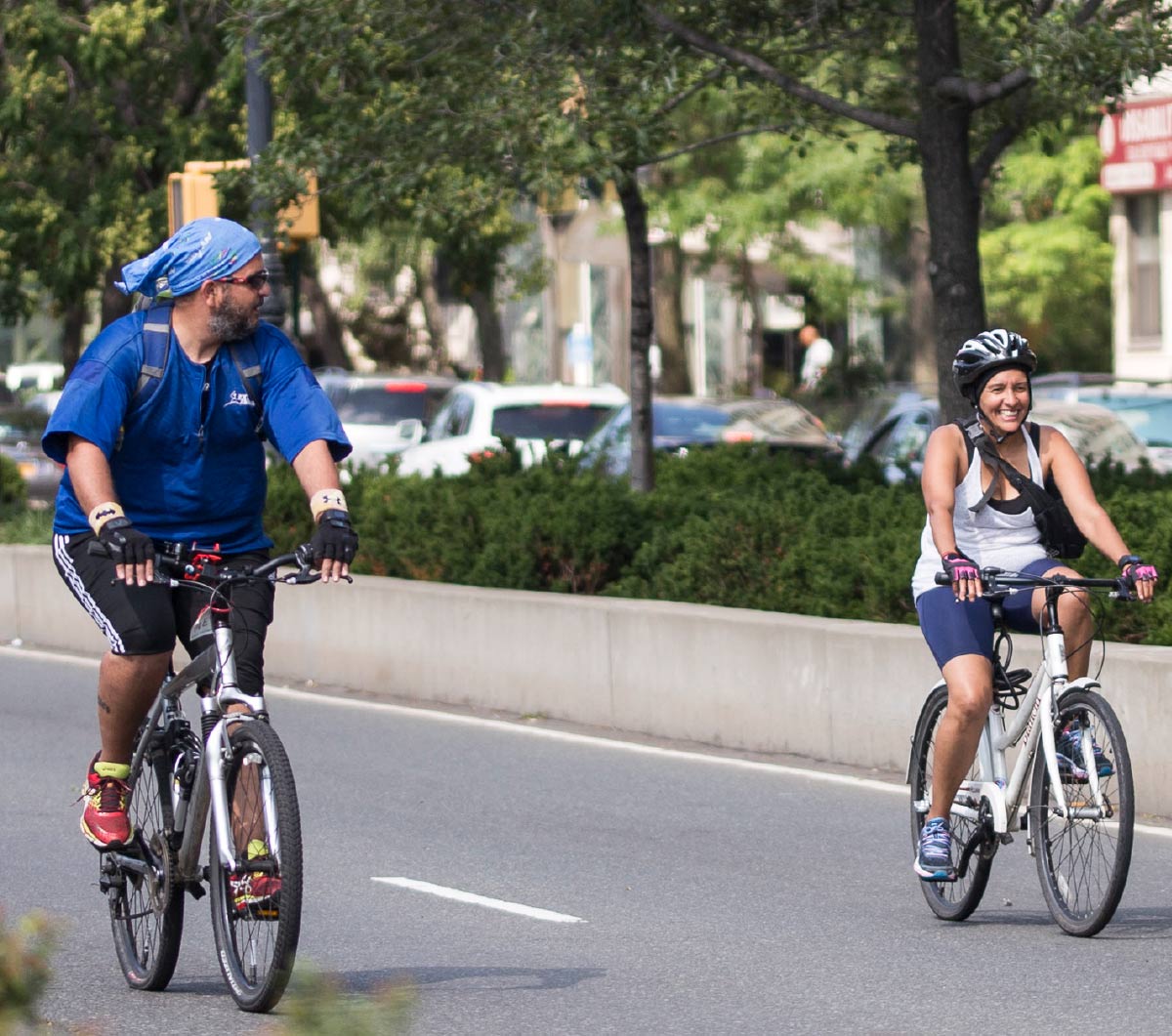
Bronx eatery Seis Vecinos is one local business the FBDC has assisted in the six months since it formed. Omar Canales, who opened the restaurant with his cousin in 2012 and expanded into a larger location four years ago, said the pandemic had forced him to kick their marketing efforts into overdrive. The owners met with Fordham students in a few virtual Zoom meetings and gained some helpful insights and advice.
“I was able to get a different angle on how we can better present ourselves online, through search engine optimization and our social media,” he said. “I also got some extremely helpful pointers when it comes to the main splash page on our web page.”
Canales said he appreciated the students’ technical advice as well, such as slowing down the transition between photos on the main page of the restaurant’s website.
“They also did their own analysis, comparing us to neighboring restaurants in terms of how and where we can improve our search. Using more Latin American keywords or using Latin food keywords or emphasizing more of our menu items so we appear even higher up or just as high as other establishments that are offering the same dishes that we are,” he said.
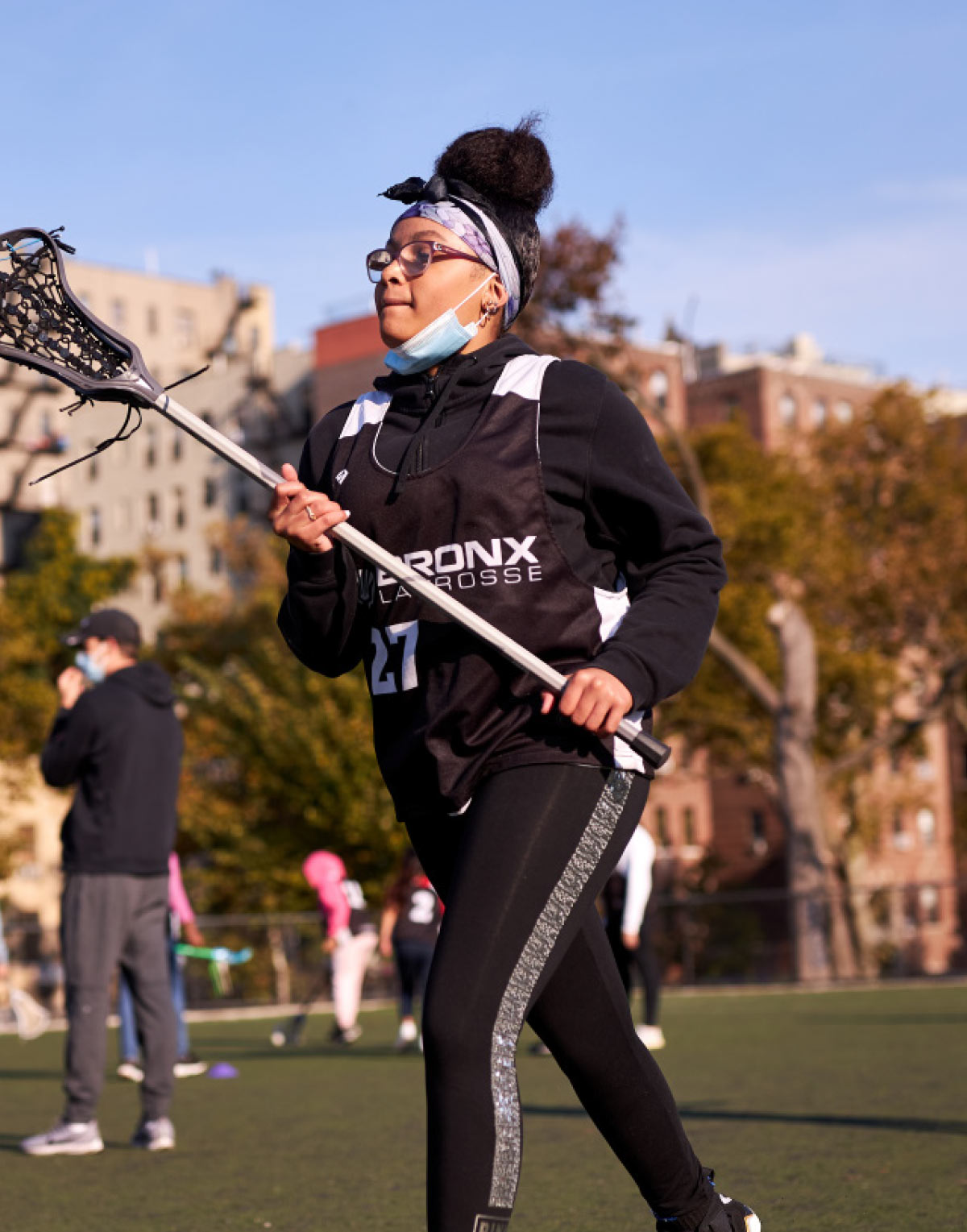
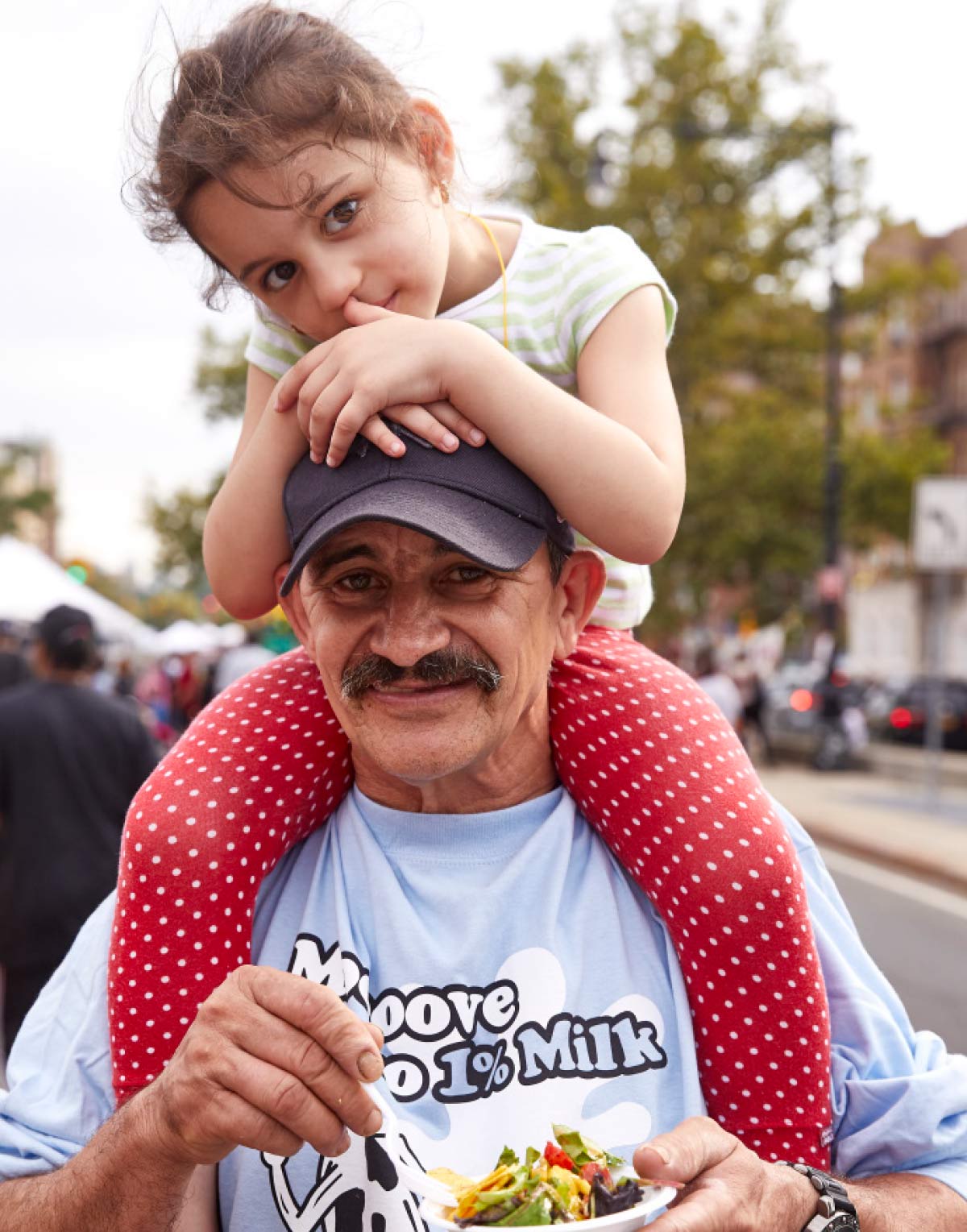
In addition to working on client projects, students in the FBDC conduct research, develop industry reports, and create case studies and videos to make additional resources available to Bronx businesses who need it.
“We’re learning so much, and we have this wealth of knowledge,” said Marisa Garvin, BS ’23, FBDC strategic operations director and a Bronx resident herself. “It only makes sense during these trying times to share that and uplift the community.”
In six months, the FBDC has grown to more than 70 students and has assisted 15 clients—including a jewelry retailer, two nonprofits, a software company, a construction company, and an insurance firm—with everything from website development to business strategies and compliance for 501(c)(3) certification. In addition to word-of-mouth referrals and an intake form on its website, the group has also connected to new clients through the South Bronx Overall Economic Development Corporation, the Bronx Small Business Development Center, and Bronx Business Improvement Districts.
“I tell students when you graduate, the most important question you’re going to answer in your job interview is ‘What is so unique about you? What’s your story?’” Sylla said. “And the story is not that you went to Fordham and had this major and this GPA. The story is you created a structure that helps small businesses to overcome the challenges of the pandemic.”
While he continues to serve as an adviser, Sylla said that the FBDC is truly a student-run organization founded for social good. “They understand that it is only in serving all that we serve ourselves,” he said. “They understand that business is nothing but an instrument for helping society.”
Named “The Bronx Tale,” the event included a webinar that featured a panel comprising owners from five very different businesses; each had a unique story to tell.
Henry Obispo shared the experiences that led to the opening of Born Juice two and a half years ago. A sustainable juice bar and plant-based eatery, Born Juice grows food in hydroponic gardens, uses green technology, and works with local youth to teach them about urban farming, eco- gastronomy, and hyper-local systems.
“As a social entrepreneur, I wanted to create my own business and engage the community around food, food justice, and food access with the idea of finding solutions,” said Obispo, who was born in the Dominican Republic and grew up in the South Bronx. After earning a scholarship from the Bill and Melinda Gates Foundation, he completed his bachelor’s degree at Binghamton University and graduate studies at New York University and then traveled the world. In Brazil, Obispo studied entrepreneurship through a program with the United Nations.
“Upon returning to the Bronx, I was hit with a new perspective,” he said. “It was a stark reality here around food,” he explained, noting that the Bronx is considered one of the largest food deserts in the nation. “I felt like I was equipped to be able to do something about it.”
In addition to opening Born Juice, Obispo has launched initiatives aimed at opening food access throughout the Bronx. One is the Bronx Salad Initiative, an effort to promote healthier eating, which he partnered on with fellow panelists from Mainland Media, a media influence company that also operates the Bronx Beer Hall.
Panelist Majora Carter, a third-generation Bronxite and self-proclaimed “serial entrepreneur,” is a real estate developer, an urban revitalization strategy consultant, and the co-owner of Boogie Down Grind Café, a coffee and craft beer house.
“It was part of a strategy specifically to create stickiness in our community,” Carter said. “We’re often told we need to measure success by how far we get away from our neighborhoods. ‘If you’re smart, you’re going to grow up and get out.’ Most of us believed it, and that is really sad.”
Carter returned to the Bronx while she was attending graduate school at New York University and recognized all of the talent right at her doorstep. “I realized I could be part of changing the dynamics that affected people’s health and quality of life, and part of that means starting businesses.” So she invested her own money to create the first specialty café she said her South Bronx community has had since she was in high school in the 1980s.
With Carter as real estate developer, one of Carter’s current projects involves transforming a historic rail station in Hunts Point into an event and visual production venue, something she envisions as a commercially viable community gathering place.
Other businesses represented on The Bronx Tale were The Bronx Brand, a printing company that collaborates with local artists to design Bronx-themed T-shirts, and Wall Works, an art gallery that features the works of both local and international artists.
“We saw that there was a need for space to show art [created by] artists from the Bronx and to show art to the people of the Bronx,” said Anna Matos, gallery director and daughter of gallery owner and Bronx-born graffiti pioneer John “Crash” Matos, who made his name painting trains in the 1970s. “The Bronx is so rich in creativity,” she added. “This is showcasing that we have it here. You don’t have to travel any farther to see great art.”
Colin Wexler, BS ’22, who dedicated months to organizing the Bronx Tale with Shauna Fortier, BS ’20, and other students in the philanthropy committee said it drew a record-breaking audience of 100 students and alumni. “We really wanted to help these Bronx businesses who put their heart and soul into their companies and are really struggling,” he said.
Not only did the event give students a glimpse of what it takes to start and build a successful, socially conscious business, but also, it introduced them to venues they can shop at right in their own neighborhood, Wexler added. “We wanted to show students that they didn’t always have to go into Manhattan when there’s so much right here.”
Members of the virtual audience completed questionnaires about the businesses in order to be entered in raffles for several giveaways, including clothing, coffee mugs, tote bags, T-shirts, and other merchandise. Wexler said the digital raffles drew an impressive 30-percent response. “It shows that people were moved by the event and really did want to help local businesses,” he added. “Some students even did some holiday shopping at these stores.”
Wexler and his peers are already planning future events and considering the creation of a monthly podcast focused solely on the Bronx. “We think it’s really awesome that the Gabelli School is so passionate about creating change in the business community,” he said. “Social innovation has always been at the forefront of the school, and it is the future of business.
Photographer Argenis Apolinario was born and raised in the Bronx and remains deeply connected to the community and the Bronx arts.

Wall Works, Born Juice, and The Boogie Down Grind Café are among the businesses that participated in The Bronx Tale, a virtual event organized by students to showcase neighborhood entrepreneurs.
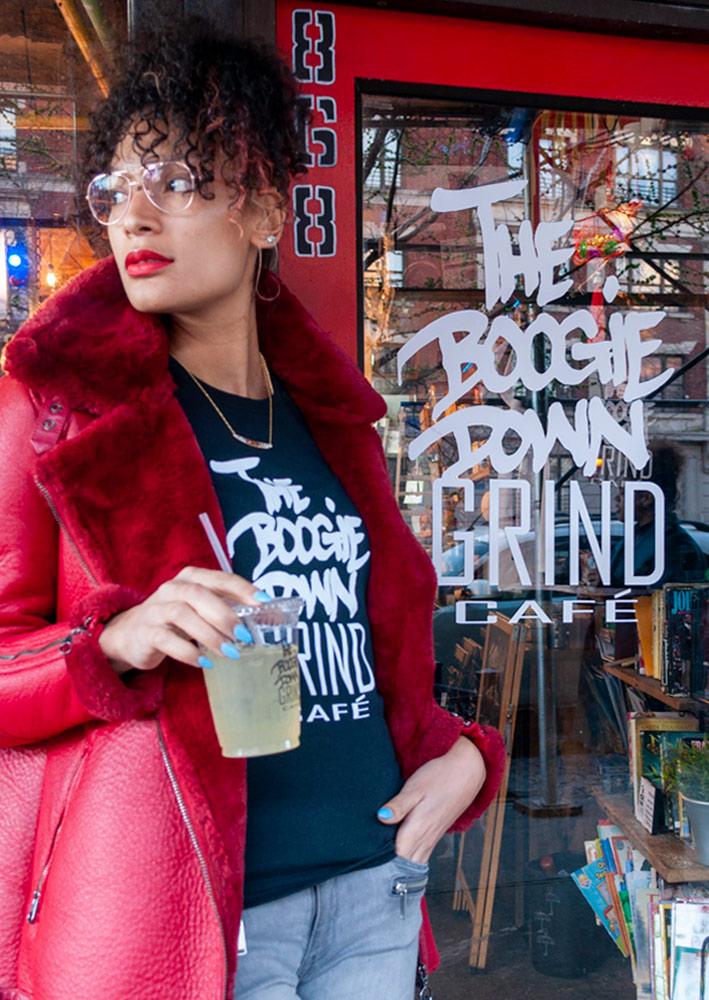

Wall Works, Born Juice, and The Boogie Down Grind Café are among the businesses that participated in The Bronx Tale, a virtual event organized by students to showcase neighborhood entrepreneurs.

Photos courtesy of Wall Works, Born Juice, and The Boogie Down Grind Café
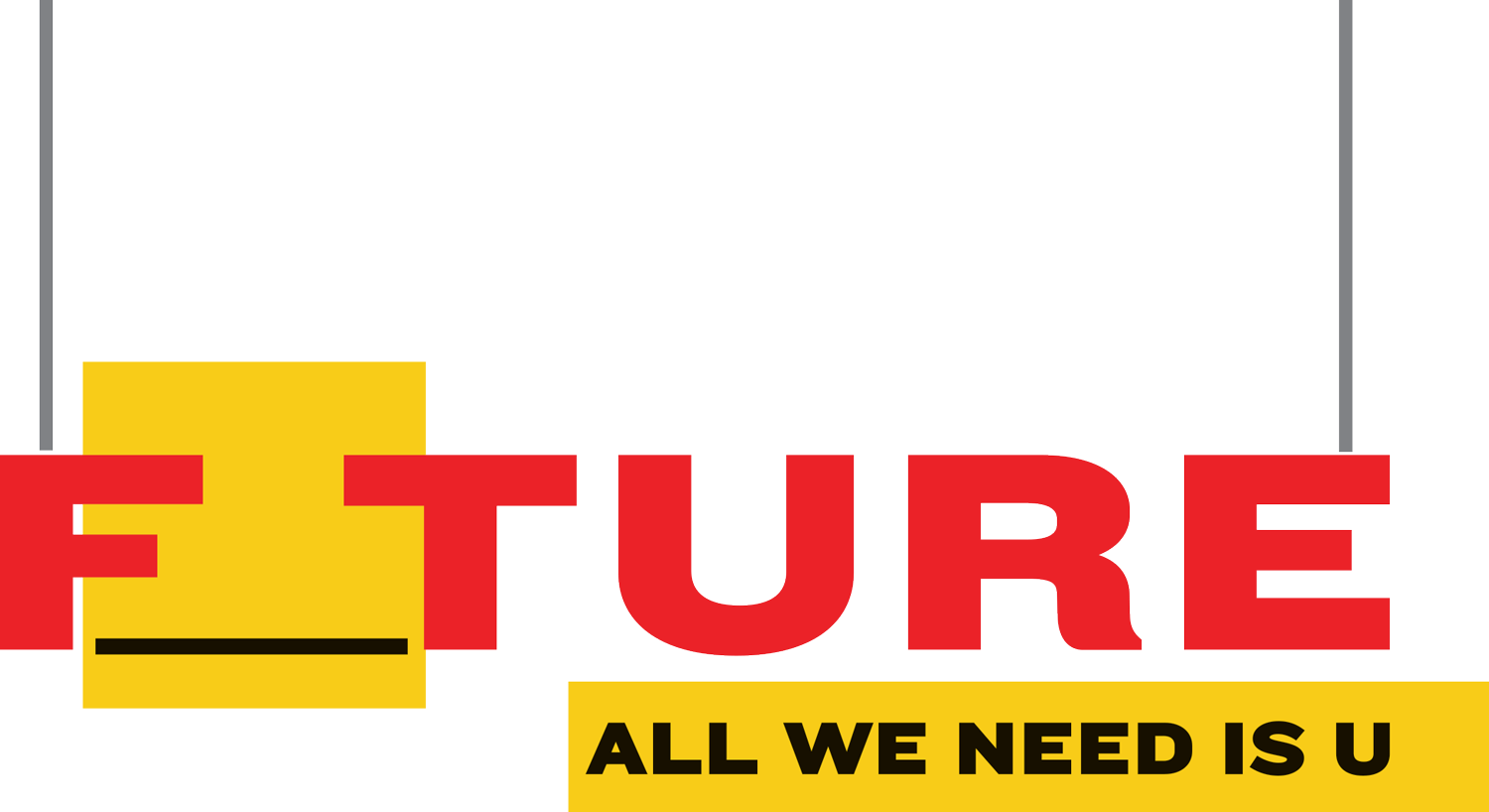
Located down the road from Fordham’s Rose Hill campus, the private Catholic high school for boys shares a decades-long bond with the Gabelli School and a mutual passion for education.
The project was structured in the form of a student competition led by Mohammad Nejad, Ph.D., associate professor of marketing and chair of the marketing area at the Gabelli School. Nine teams—a total of 40 undergraduate and graduate marketing students—were charged with developing compelling messages for a banner that hangs from the top of the high school building—prime advertising real estate that is in full view of millions of daily commuters passing by on Metro North’s Harlem and New Haven lines.
Partnering on the project would be a win-win for both institutions, offering Gabelli School students the opportunity to develop creative solutions for a real client and providing the high school with valuable market research and advertising concepts.
“This competition was a comprehensive, learn-by-doing experience,” Nejad said. “Participants first learned how companies plan and execute these types of projects in workshops taught by my colleagues. Then they designed their projects and employed diverse research methodologies, including surveys, interviews, various secondary data, and text analyses of websites, public communications, and social media.” The teams then synthesized their findings and came up with creative messages and execution plans and pitched their works to the Cardinal Hayes High School leadership.
Acknowledging the quick minute they had to catch the attention of their audience as they travel by, Daniella Rossi, BS ’20, a member of the winning team, summed up the challenge: “We needed to find one word that would resonate with donors,” she said. “It would signal to them that they are making an investment in these students, stand out as unique and original, encapsulate the sense of brotherhood, and encapsulate the future.”
Rossi and teammates Isabella Calingaert, BS ’21, and Kelly Christ, BS ’21, created the message “F_TURE. All We Need Is U.” Their clever idea won the team praise from the judges in both the semi-final and final rounds, along with a $500 Amazon gift card.
The second-place team of students in the M.S. in Marketing Intelligence program—Stephen Thylan-Nussbaum, MS ’22, Carla Jackson, MS ’21, Jingna Liu, MS ’21, Ningyuan Hu, MS ’21, and Yuan Wang, MS ’21—received a $150 Amazon gift card for a sentiment that their surveys showed would appeal to their higher-income audience: investing in education. They proposed a slogan that compared their donation to the train fare they pay every day: “Your Fare = A Boy’s Future.”
Gabelli School Adjunct Marketing Instructor Linda Luca, who coached the teams throughout the competition and moderated the final presentations, said she was most impressed by the students’ selfless nature. “Beyond the banner message, the students developed additional ideas for Cardinal Hayes High School. The Gabelli School teams were truly more interested in helping the school have a successful fundraising campaign than in whether or not they won the competition.”
The judges for the final round—Dr. Michael Carey, president of Cardinal Hayes High School, Nancy Rhodes, vice president of development, and George Dawson, FCRH ’17, director of alumni engagement—noted that picking a winner was difficult considering the talent of all of the teams. They expressed their excitement and gratitude because of what the new campaign would mean to the institution and to students in the Bronx.
“We want to keep these kids in the school, keep them getting great educations, and keep them getting scholarships to the best colleges, and we can’t do that alone,” Rhodes said. “Everything that you all have collectively come up with has all of our wheels spinning. These are ideas that will help us move our mission forward.”
Gabelli School faculty agree that projects like the advertising competition, the Fordham Business Development Collaboratory, and The Bronx Tale not only enrich students’ skill sets but also provide opportunities for them to experience what it’s really like to do business with purpose.